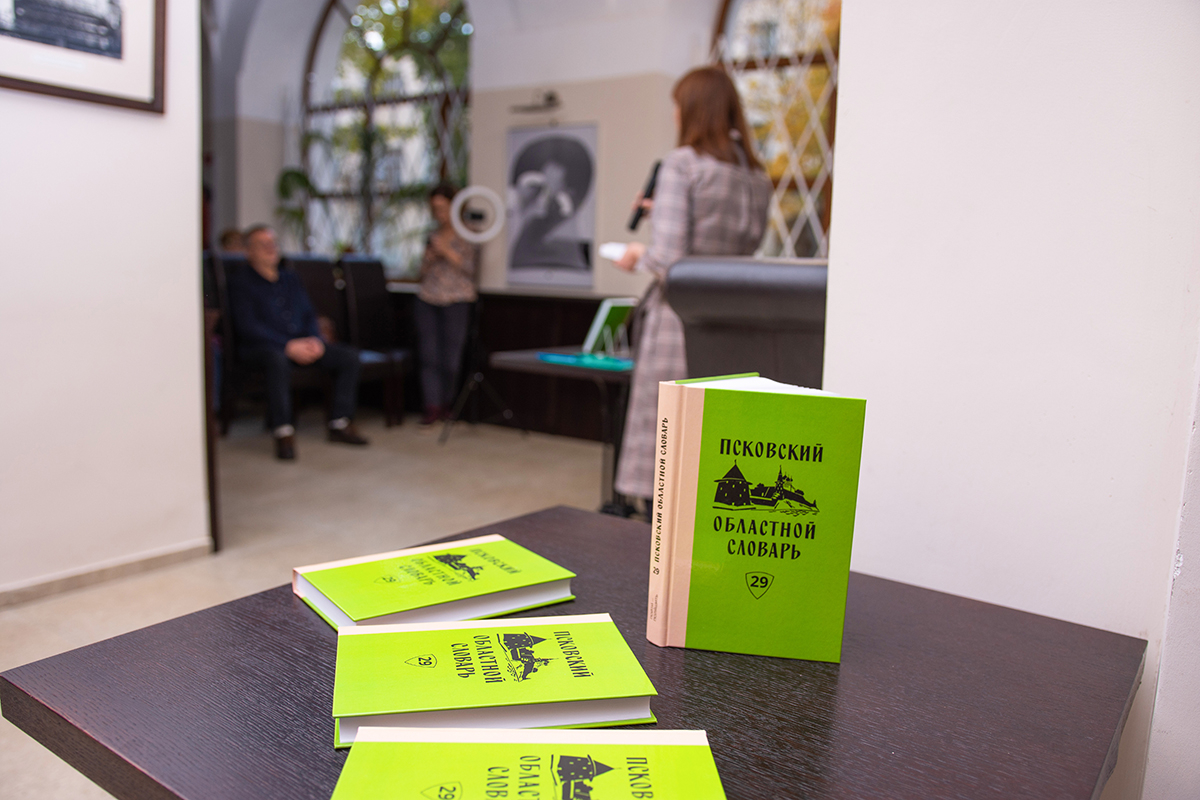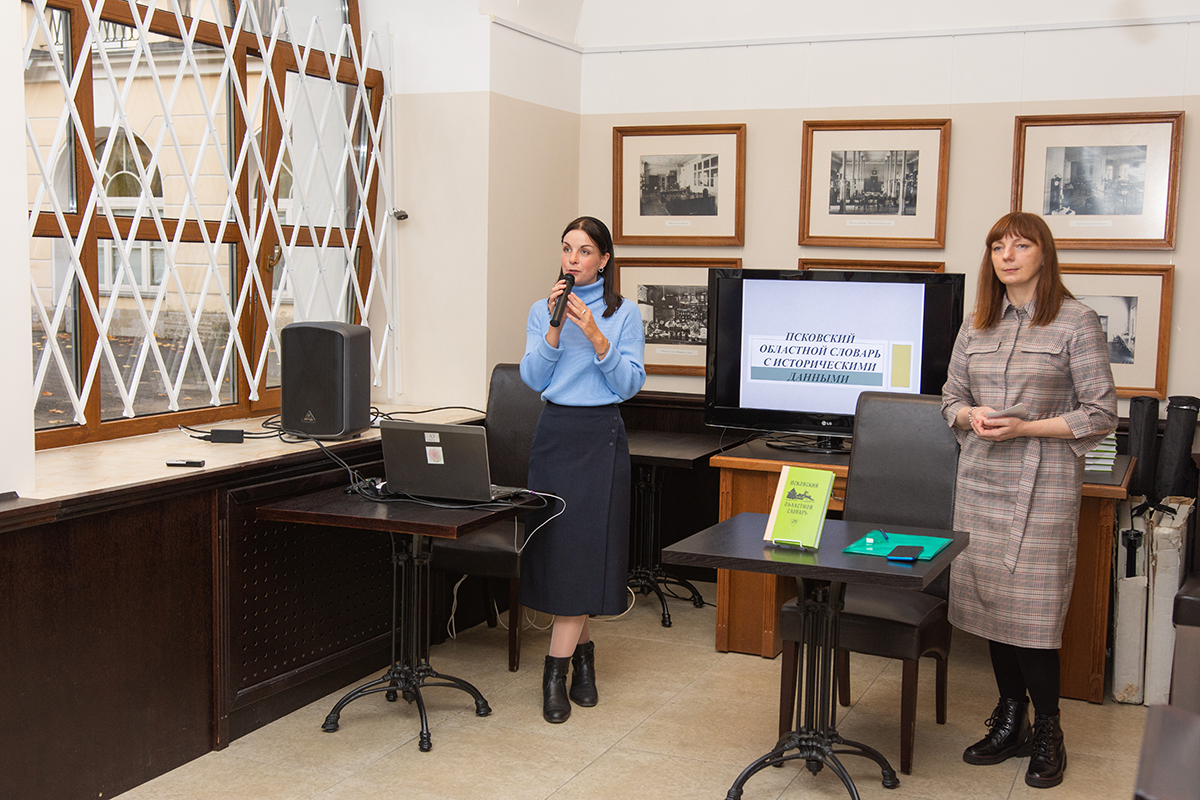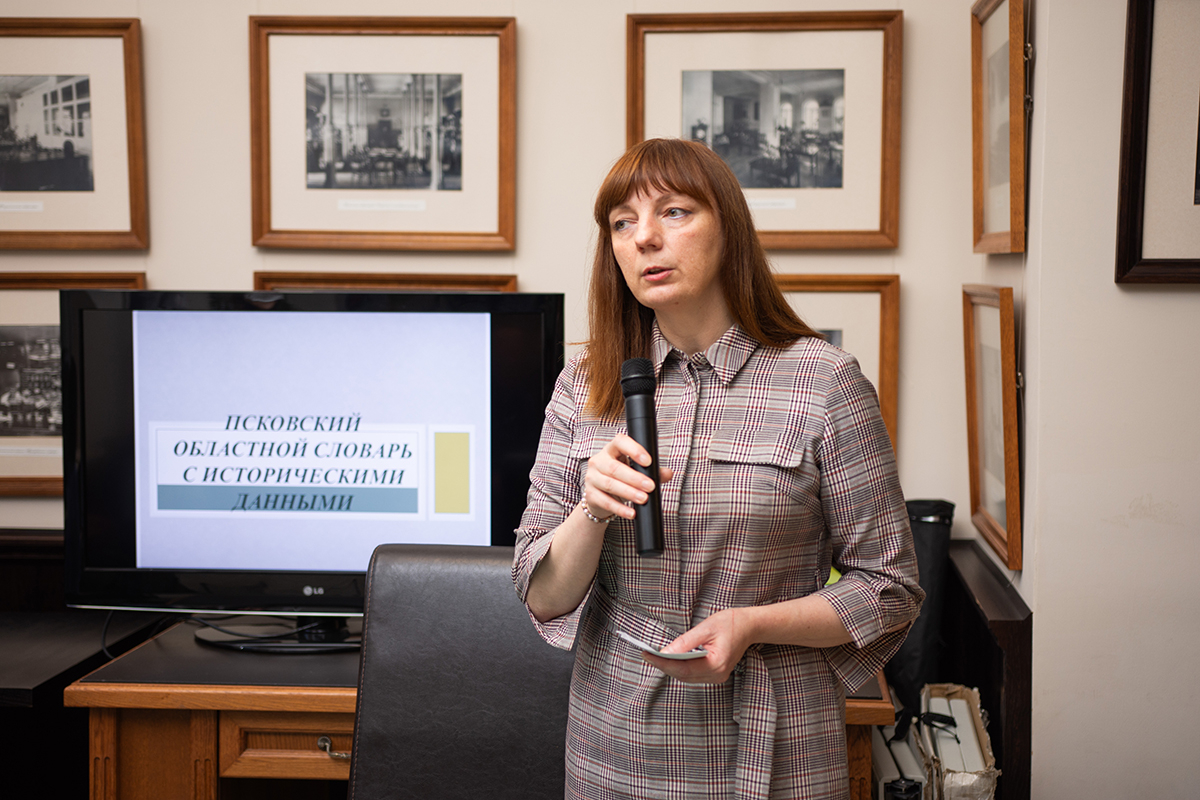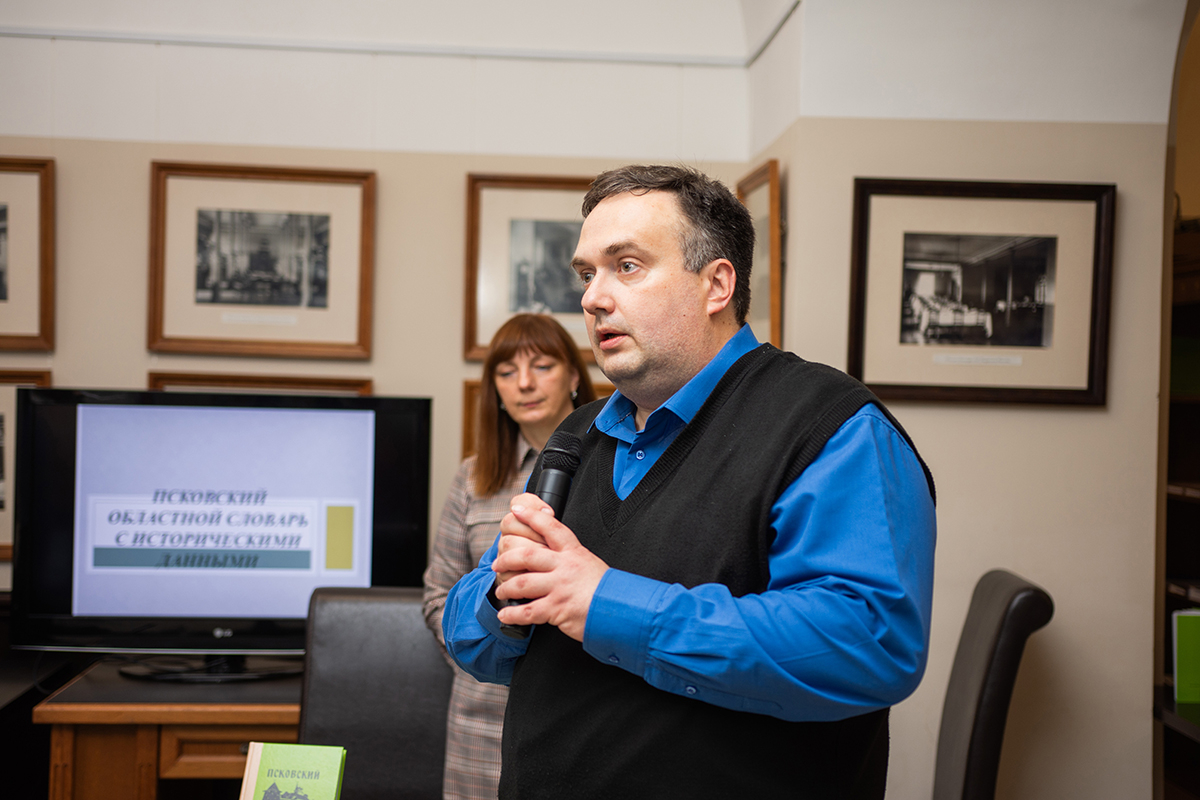St Petersburg University philologists continue project initiated by their teachers over half a century ago
The latest volume of the Pskov Regional Dictionary, the concept of which was pioneered by the renowned Russian linguist and lexicographer Professor Boris Larin (1893-1964), has been presented at St Petersburg University.
The inaugural volume of the dictionary was published over half a century ago, in 1967. The previous, 28th volume, was released in the year of the global pandemic, 2020.
Associate Professor Mikhail Koryshev, Dean of the Faculty of Philology at St Petersburg University, likened the Pskov Regional Dictionary to Alexander Pushkin’s novel in verse Eugene Onegin, noting its comparable comprehensiveness and monumental scope.
‘Just as Pushkin’s masterpiece, Eugene Onegin, offers a panoramic portrayal of Russian life, our dictionary serves as an encyclopaedia of one of Russia’s most interesting regions — Pskov and its surroundings,’ remarked Mikhail Koryshev. ‘This area is a nexus of intersections: historical milestones, human destinies, nationalities, and events. All of this is reflected in our volumes.’
The Principality of Pskov, an outpost and Northwest border of the Russian state, fostered rich interstate contacts that significantly influenced the region’s linguistic uniqueness.
Drawing parallels with the work of German universities, which traditionally produce regional dictionaries, Mikhail Koryshev highlighted the uniqueness of the Pskov Regional Dictionary project: ‘Such endeavours can span decades or even centuries, typically involving collective efforts from the academic community,’ he explained. ‘Our dictionary is fortunate: this volume is the fruit of our collaboration with the Creative Universe International Sociocultural Foundation. The philological tradition of Leningrad and St Petersburg has always been rooted in integrity and openness, and we are delighted to partner with this non-governmental organisation. Through this cooperation, we will be able to reveal the Russian North in all its diversity, beauty, and strength.’
The newly released 29th volume covers entries for the Russian letter ‘п’, ranging from ‘пойти’ to ‘поляшить’.
Elena Kuzmina, Assistant Professor in the Department of Russian at St Petersburg University and co-author of the Pskov Regional Dictionary, emphasised that the publication is a comprehensive regional dictionary.
This means that our dictionary encompasses not only region-specific terms but also general Russian vocabulary — essentially, any word that might be heard in the everyday speech of the Pskov region inhabitants. This comprehensive approach is a cornerstone of the St Petersburg school of Russian academic lexicography, a tradition established by Professor Boris Larin and passed down to my generation by his students. We have faithfully adhered to these principles in this volume.
Elena Kuzmina, co-author of the Pskov Regional Dictionary
The aspiration to capture the language in its entirety is evident in the illustrative material and the historical section, which, in keeping with dictionary tradition, includes quotations from the medieval written monuments. Professor Boris Larin’s vision was unique for the world linguistics. He aimed to publish ‘a regional dictionary on a broad historical background’. According to St Petersburg lexicographers, this approach has transformed the dictionary of a Slavic language grounded on the dialectal speech of the Pskov region, into a publication unparalleled in the world linguistics.
Among the principalities of Ancient Rus’, none boasted such a wealth of diverse written sources as Pskov. In compiling the dictionary, 117 historical sources were employed, including: legal, business, and political documents; hagiographies; and a rich trove of local fiction. Notably, the Pskov chronicles, the census books of the Pskov-Pechory monastery, and birch-bark letters — the latter were not exclusively found in Veliky Novgorod, as is commonly believed — proved invaluable in enriching this volume.
The publication contains several linguistic maps, which enables the study of colloquialisms using the methods of linguogeography.
Currently, lexicographers from St Petersburg University are diligently working on the 30th volume of the dictionary. The entry for ‘псковский’ is yet to be included. The University’s philologists are committed to ensuring that the dictionary spans the entire alphabet, with the final volume, covering the last letter of the Russian alphabet, ‘я’, eventually published.





